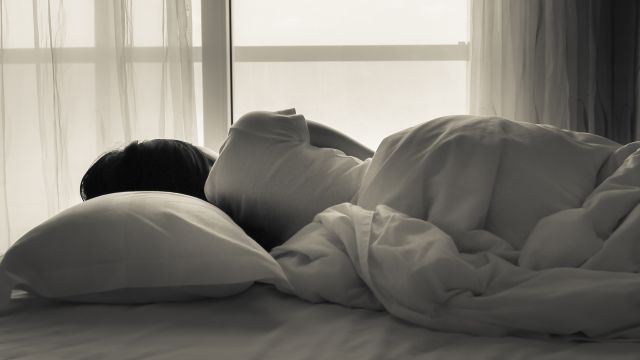It can be easy to write off a rough night’s rest with a strong cup of coffee and a shrug the next morning. But the results from one European study may have you paying closer attention to the quality of your sleep each night.
The damaging effects of poor sleep
Researchers, lead by Professor Valery Gafarov of the Russian Academy of Medical Sciences, conducted a study looking at the sleeping habits of 657 men aged 25-64, all of whom had no previous history of stroke, heart attack or diabetes.
They used a validated sleep scale to rate the participants’ sleeping habits, including frequency and problems to determine which ones had sleep disorders. Researchers then compared this to the men’s rates of heart attack and stroke over the next 14 years.
Prof. Gafarov and the team found that, compared to men who didn’t have a sleeping disorder, the ones who did had about a two and a half times greater chance of having a heart attack, and up to four times greater risk of suffering a stroke – a finding so startling that it prompted researchers to call for poor sleep to be listed as a risk factor for cardiovascular disease, alongside smoking, lack of exercise and poor diet.
This assumption that better sleep means better health isn’t new. For years, researchers have been studying the negative health effects of poor sleep, and have found connections between a lack of shut-eye and everything from chronic pain to dementia. But, according to Jamie Fernandez, MD, of Memorial Hospital of Tampa in Florida, “This study is really one of the first to clearly show a link between poor sleep and heart attack and stroke.”
Why is this important?
“While it’s impossible to prove direct causality, the more research that comes out, the more we can really show that these associations are strong enough that they should raise some red flags for physicians and patients,” says Dr. Fernandez. “And even on a more logistical level,” she adds, “[we can show] that [poor sleep] is a real issue that affects overall health, and overall medical expense – meaning it should be well-covered and well-evaluated as part of our general, annual checkup.”
Sleep well for brain health
Getting a good night’s rest does more than help you prepare for that morning meeting. It’s critical for overall brain function. “Untreated sleep disorders can increase the risk of developing psychiatric conditions later in life,” says Dr. Fernandez. In fact, “Reports find that that as many as two-thirds of patients referred to sleep disorder centers have a psychiatric disorder,” she adds.
So how much sleep is enough?
According to Dr. Fernandez, “Seven to nine hours is optimal, though individuals may have different needs. We consider six hours or less to be associated with co-morbidities later in life, including a higher risk of death, and some studies have found that longer sleep durations, like nine to 10 hours a night, may have some association with poorer outcomes.”
Expert tips to sleep tight
If you have trouble falling and staying asleep, consider these tips from Dr. Fernandez:
- Practice good sleep hygiene. Make your room conducive to rest by powering down tablets, TVs and cellphones. And don’t bring your work into bed with you; your bed should be for sleeping.
- Follow a regular sleep schedule. Getting into a sleep routine can help your body learn when to expect rest. Stay consistent by going to bed and waking up at the same time, even on the weekends.
Also, minimize your alcohol consumption, get in some exercise, and skip out on naps after 3pm.
If you’re still having trouble sleeping, you snore or you think you’re sleeping but find yourself exhausted in the middle of the day, Dr. Fernandez recommends seeing your primary care physician, to determine if there’s a bigger underlying issue.
“Lack of sleep is not a small, localized issue. It really deserves a proper work-up, just like any other disorders we treat.”






